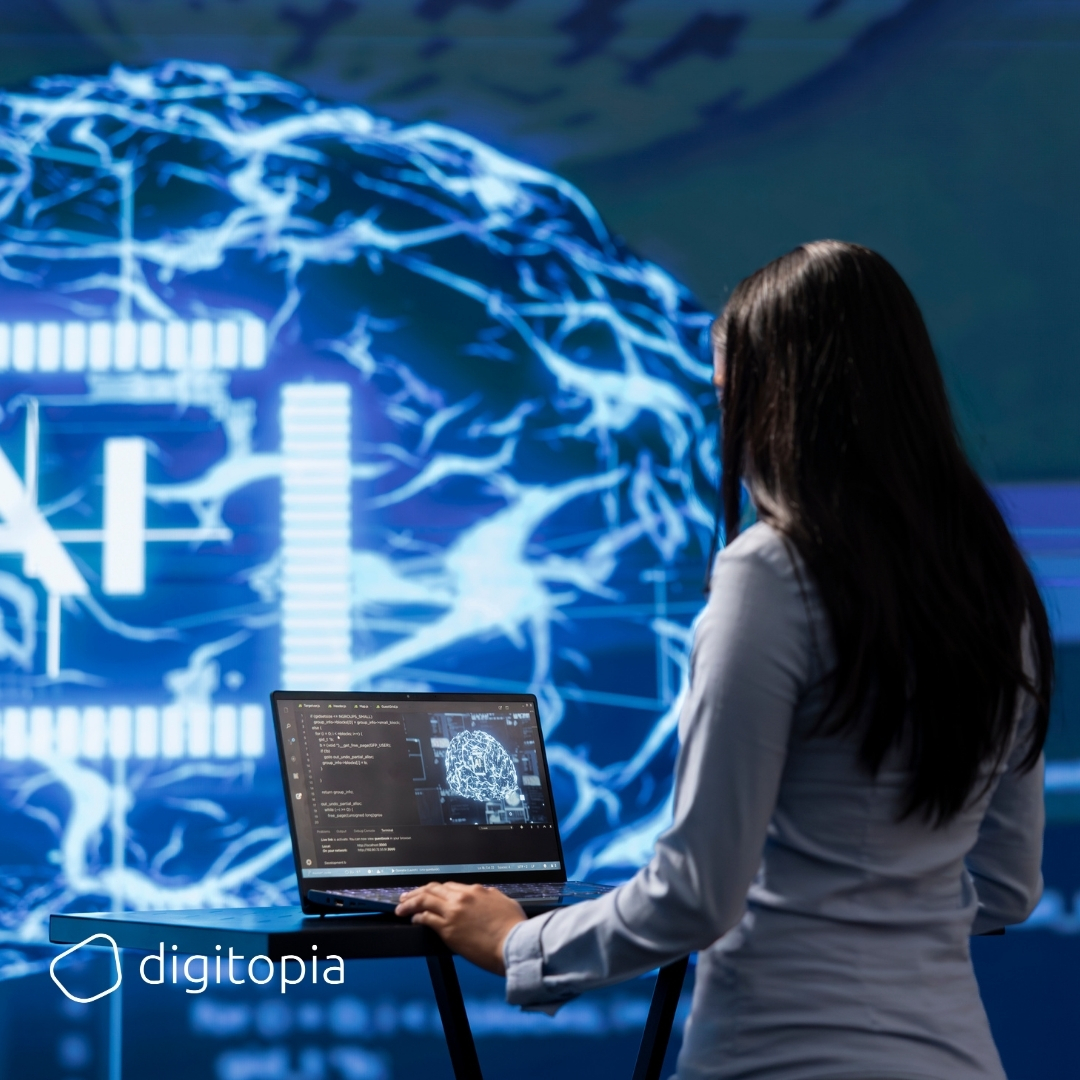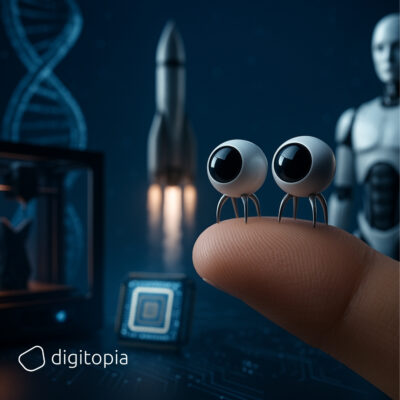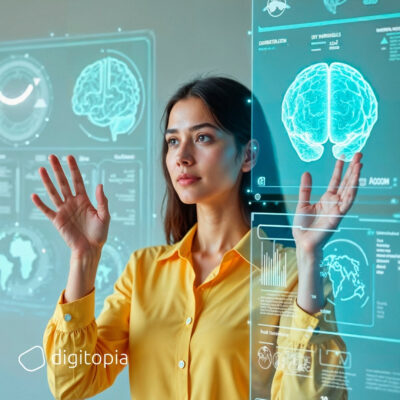
Imagine understanding the deepest workings of the human mind, enhancing cognitive abilities, curing neurological disorders, and optimizing human performance in unprecedented ways. Welcome to the transformative frontier of Neuroscience—a rapidly evolving field poised to revolutionize medicine, education, technology, and our fundamental understanding of what it means to be human. From unlocking the mysteries of consciousness to enabling direct brain-to-machine communication, neuroscience stands at the intersection of scientific discovery and practical application, driving humanity towards a future filled with boundless possibilities.
What Are Neuroscience Technologies?
Neuroscience delves deeply into the intricate complexities of the brain and nervous system, driving revolutionary insights into cognition, behavior, perception, and mental health. Recent advances in brain imaging technologies, neuroengineering, artificial intelligence, computational neuroscience, and biotechnology have dramatically accelerated scientific discoveries. These breakthroughs open unprecedented opportunities for medical advancements, human enhancements, personalized learning, and even augmented human-machine interfaces. Neuroscience no longer solely seeks to understand; it actively engages in reshaping the landscape of human capability.
Key Trends and Developments on Neuroscience Technologies
Neuroscience is experiencing rapid advancements driven by breakthroughs in technology, collaboration across disciplines, and increased understanding of brain functions. These emerging trends are redefining healthcare, enhancing cognitive capabilities, and opening new avenues for innovation and growth across various industries. Understanding these key developments will help organizations and executives strategically position themselves at the forefront of this transformative wave.
Brain-Computer Interfaces (BCIs): Cutting-edge technologies now enable direct communication between the brain and external devices, providing profound solutions for restoring lost motor functions, communication capabilities, and even enhancing natural cognitive functions.
Neuroplasticity and Cognitive Enhancement: Leveraging the brain’s remarkable adaptability and plasticity is revolutionizing education, rehabilitation, and performance training. Customized learning experiences and targeted cognitive exercises can dramatically improve learning outcomes, memory retention, and skill acquisition.
Precision Neuroscience: Employing genetic profiling, advanced brain imaging techniques, and computational modeling allows for highly personalized approaches in diagnosing and treating neurological disorders, significantly increasing the effectiveness of medical interventions.
Artificial Intelligence Integration: The synergy between neuroscience and artificial intelligence promises to decode complex brain patterns with unprecedented accuracy, significantly advancing diagnostic capabilities, therapeutic interventions, and understanding of human cognition.
Neuroethics and Regulation: Growing awareness and attention toward ethical considerations and responsible governance are shaping how neuroscience progresses, ensuring privacy, security, and equitable access to neurotechnological advancements.
Practical and Visionary Use Cases
Neuroscience applications extend far beyond theoretical research, offering both immediate solutions and visionary possibilities. From revolutionary medical treatments and personalized education to cutting-edge neurotechnologies, these use cases demonstrate neuroscience’s profound ability to improve health, enhance human capabilities, and transform the way we live and work.
1. Medical Treatments and Rehabilitation
Groundbreaking treatments for epilepsy, Parkinson’s disease, depression, and traumatic brain injuries are emerging from neuroscience research, utilizing targeted brain stimulation, neurofeedback, deep brain stimulation implants, and advanced pharmacological approaches.
2. Cognitive Performance and Education
Educational tools and cognitive training programs informed by neuroscience are enabling tailored learning experiences. These personalized methods improve memory, problem-solving abilities, critical thinking, and overall cognitive resilience, significantly enhancing educational outcomes and lifelong learning.
3. Neurotechnology and Prosthetics
The integration of sophisticated neuroprosthetics, sensory augmentation devices, and brain-controlled robotics dramatically improves the quality of life and independence for individuals with disabilities. Innovations in prosthetics allow near-natural control, restoring not only functionality but dignity and autonomy.
4. Mental Health Diagnostics and Therapy
Neuroscience-based diagnostics and therapeutic tools, such as functional neuroimaging and precision neurofeedback, are revolutionizing mental health care. These technologies enable early detection, personalized intervention, and measurable outcomes, transforming mental healthcare’s landscape.
5. Enhanced Human Capabilities
Visionary applications such as enhanced memory, attention, and decision-making capabilities through neurostimulation techniques and cognitive training software offer possibilities of augmenting human abilities beyond natural limits, sparking new discussions about human enhancement and ethics.
Leading Companies in Neuroscience Technologies
The rapid advancements in neuroscience are significantly driven by innovative companies pioneering breakthroughs in brain research and neurotechnology. These leaders are actively translating cutting-edge discoveries into practical solutions, revolutionizing healthcare, cognitive enhancement, and human-machine integration. Here are the industry front-runners shaping the future of neuroscience.
Neuralink
Leading the way in developing advanced brain-computer interfaces to restore and enhance human abilities, potentially bridging human cognition with artificial intelligence.
Kernel
Innovating non-invasive neuroimaging techniques to map brain activity, enhancing mental health diagnostics, cognitive performance, and personalized wellness solutions.
MindMaze
Delivering neurotechnology-driven rehabilitation solutions for stroke recovery, neurological disorders, and cognitive enhancement applications.
Emotiv
Providing consumer-friendly EEG headsets and software solutions, enabling wider public and professional access to brain health monitoring and research tools.
BrainGate
Developing pioneering neural interfaces allowing direct brain control of external devices, significantly advancing the independence and quality of life for paralyzed individuals.
Emerging Startups to Watch
A vibrant ecosystem of startups is rapidly emerging in neuroscience, driven by cutting-edge research and groundbreaking technological innovations. These companies are introducing novel solutions that promise to revolutionize how we approach brain health, cognitive enhancement, and human-machine integration. Here are some of the most promising startups shaping the future of neuroscience.
Neurable
Creating accessible and effective brain-computer interfaces designed for everyday applications, gaming, and workplace productivity enhancements.
Precision Neuroscience
Innovating targeted treatments utilizing high-resolution neural mapping and stimulation methods, significantly advancing neurological therapies.
Neuroelectrics
Specializing in wireless neurostimulation and monitoring technologies, enabling personalized treatments and precise therapeutic interventions for brain disorders.
Paradromics
Advancing high-bandwidth neural interfaces capable of real-time brain-data transmission, paving the way for powerful therapeutic and diagnostic tools.
Synchron
Developing minimally invasive neural implants designed to restore communication capabilities for people with severe paralysis and neurological impairments.
Global Brain Research Initiatives
Several ambitious global initiatives exemplify neuroscience’s collaborative approach and its potential for transformative insights:
The BRAIN Initiative (USA): The Brain Research through Advancing Innovative Neurotechnologies Initiative aims to revolutionize understanding of the human brain by accelerating the development and application of innovative technologies. The project focuses on neural circuit mapping, brain imaging, and advancing computational neuroscience.
The Human Brain Project (Europe): A collaborative project integrating neuroscience, computing, and brain-related medicine to create detailed simulations of brain functions, accelerating discoveries and treatments for neurological diseases.
The Blue Brain Project (Switzerland): Led by EPFL, this initiative aims to create a digital reconstruction of the rodent and human brain through detailed simulation, providing a powerful tool for understanding brain disorders and developing targeted treatments.
China Brain Project: A large-scale research effort focusing on understanding brain disorders, developing brain-inspired artificial intelligence, and creating advanced brain-machine interfaces.
Brain/MINDS (Japan): An initiative aimed at mapping the marmoset brain to understand the structure and function of the primate brain, significantly contributing to neuroscience and neurological treatments.
Leading Scientific Institutions in Neuroscience
Prominent institutions are pioneering groundbreaking neuroscience research:
Massachusetts Institute of Technology (MIT), USA: Renowned for innovative neuroengineering and cognitive neuroscience research.
Harvard University, USA: Leading advances in neurobiology, brain imaging, and mental health research.
Max Planck Institute for Brain Research, Germany: Specializing in understanding neural circuits, brain functions, and cognitive neuroscience.
University College London (UCL), UK: A global leader in neuroscience research, particularly in neurodegenerative diseases and cognitive neuroscience.
École Polytechnique Fédérale de Lausanne (EPFL), Switzerland: Home of the Blue Brain Project, renowned for its pioneering work in computational neuroscience.
Tsinghua University, China: Driving innovations in neuroengineering, brain-inspired AI, and neuroscience research.
Future Scenarios: Charting the Path of Neuroscience
As neuroscience rapidly progresses, its trajectory could diverge significantly, shaped by technology, ethical considerations, and societal response. Understanding potential scenarios helps businesses and policymakers prepare for and shape the future effectively.
Pessimistic Scenario: Misuse and Ethical Dilemmas
In this troubling scenario, advances in neuroscience lead to serious ethical concerns, misuse, and harmful consequences. Sophisticated brain-computer interfaces are exploited for unauthorized surveillance, manipulation, or even neurological weaponry, raising profound privacy, security, and ethical dilemmas. Socioeconomic inequalities deepen as cognitive enhancements and advanced medical treatments become exclusive privileges for the wealthy. Public mistrust grows, prompting backlash and strict, restrictive regulations that slow down beneficial research and innovation.
Optimistic Scenario: Enhancing Human Potential
In this ideal scenario, neuroscience fulfills its greatest promise, substantially advancing human health, cognitive abilities, and quality of life. Innovative neurotechnologies and brain-machine interfaces effectively treat neurological disorders, restore lost functions, and significantly improve mental health outcomes. Personalized education and cognitive enhancement technologies become widely accessible, bridging educational gaps and enabling lifelong learning and growth. Ethical governance and international collaboration flourish, ensuring responsible development and equitable distribution of neuroscience benefits.
Realistic Scenario: Steady and Regulated Growth
A balanced future emerges as neuroscience continues to evolve steadily, guided by thoughtful regulation and responsible innovation. Incremental yet consistent advancements gradually enhance medical treatments, educational methodologies, and workplace productivity. Public-private partnerships, ethical oversight, and increased awareness mitigate risks, ensuring technology serves public interest and remains accessible. Innovations in brain health diagnostics, targeted therapies, and cognitive enhancements unfold gradually, improving lives without significant disruption or inequity.
These scenarios underline the importance of proactive leadership, ethical foresight, and strategic action in guiding neuroscience towards the most beneficial outcomes for society.
Strategic Implications and Recommendations for Executives
- Invest in Neurotech Innovation: Foster collaborations, invest strategically in neuroscience research and development, and establish partnerships with academic institutions and tech companies to maintain innovation leadership and competitive advantage.
- Ethical Frameworks and Governance: Develop comprehensive ethical guidelines and transparent regulatory frameworks to responsibly manage neuroscience advancements, addressing privacy concerns, security risks, and ethical dilemmas.
- Workforce Enhancement and Wellness: Utilize neuroscience-based programs and technologies to improve employee mental health, resilience, productivity, learning, and overall wellness, creating healthier, more engaged, and high-performing workplaces.
- Customer Insights and Engagement: Leverage neuroscience methodologies to deeply understand consumer behavior, preferences, and decision-making processes, enhancing customer engagement, satisfaction, and loyalty.
- Public Education and Advocacy: Proactively engage in public education initiatives to raise awareness about neuroscience advancements, address public concerns, and promote informed discussions on the benefits, risks, and future implications of neuroscience applications.
Neuroscience is unlocking unprecedented potential for human advancement. Forward-thinking executives who strategically embrace these breakthroughs will lead transformative change, dramatically improving healthcare outcomes, optimizing cognitive and organizational performance, and profoundly enhancing human potential.




